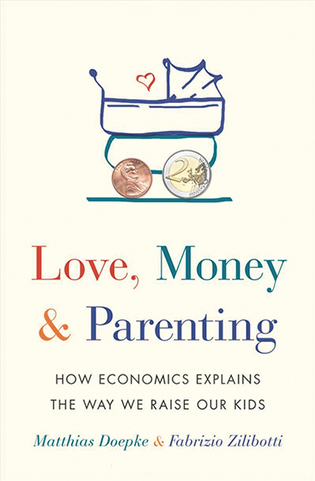 loading
loading
Arts & CultureReviews: May/June 2019Economics and parenting; a film about unconventional families.  View full imageLove, Money and Parenting: How Economics Explains the Way We Raise Our Kids James Ledbetter ’86 is the editor of Inc. and author, most recently, of One Nation Under Gold. Helicopter parents. Tiger Moms. We’re all familiar with modern parental stereotypes. But particularly within our own national and social silos, it’s easy to assume that today’s parenting methods are natural or inevitable or both. The authors, each of whom grew up in a European country, offer persuasive evidence to the contrary. Parenting styles have changed dramatically over the centuries, and even today there are crucial differences between cultures. What accounts for the different practices? Their basic answer is economics. Parents, they explain, “try their best to prepare their children for the society in which they will live.” Doepke and Zilibotti identify three broad approaches to raising children: authoritarian (exercising strict control over behavior and choices, often associated with religion); permissive (letting children make most of the choices); and authoritative (a middle ground in which parents try to influence and reason with children’s choices). Drawing on a vast body of data and literature, the authors demonstrate how social and economic factors—such as the types of industry that dominate a given economy; the percentage of women in the workforce; the relative religiosity of the society—influence how parents treat their children. One clear-cut example: when agriculture dominated Western societies through the early nineteenth century, parents and children often worked side by side. To emphasize a child’s independence under those circumstances would have been close to meaningless, and the authoritarian approach seemed like a logical choice to most. As the societies became more industrialized and complex, the parental trend shifted toward emphasizing children’s individuality. Perhaps unsurprisingly, the authors attribute today’s high-intensity parenting in many countries to the persistence and growth of economic inequality. As wealth becomes more concentrated in a few hands, social safety nets shrink, and education becomes more expensive, “parents will be highly motivated to push their children hard, even at the cost of repressing their personal development.”
|
|